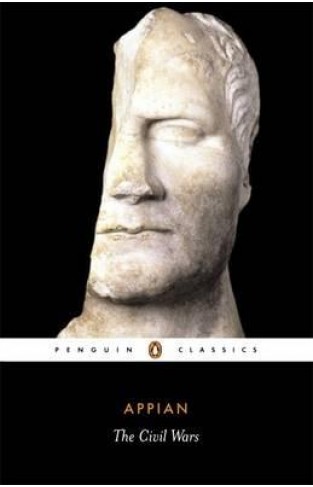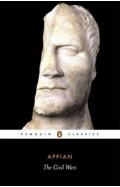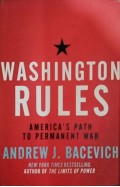The Civil Wars -
By: Appian
-
Rs 657.25
- Rs 1,195.00
- 45%
You save Rs 537.75.
Due to constant currency fluctuation, prices are subject to change with or without notice.
Appian's Civil Wars offers a masterly account of the turbulent epoch from the time of Tiberius Gracchus (133 BC) to the tremendous conflicts which followed the murder of Julius Caesar. For the events between 133 and 70 BC he is the only surviving continuous narrative source. The subsequent books vividly describe Catiline's conspiracy, the rise and fall of the First Triumvirate, and Caesar's crossing of the Rubicon, defeat of Pompey and untimely death. The climax comes with the birth of the Second Triumvirate out of anarchy, the terrible purges of Proscriptions which followed, and the titanic struggle for world mastery which was only to end with Augustus's defeat of Antony and Cleopatra. If Appian's Roman History as a whole reveals how an empire was born of the struggle against a series of external enemies, these five books concentrate on an even greater ordeal. Despite the rhetorical flourishes, John Carter suggests in his Introduction, the impressive 'overall conception of the decline of the Roman state into violence, with its sombre highlights and the leitmotif of fate, is neither trivial nor inaccurate'.
| Book | |
| What's in the Box? | 1 x The Civil Wars - |
Appian's Civil Wars offers a masterly account of the turbulent epoch from the time of Tiberius Gracchus (133 BC) to the tremendous conflicts which followed the murder of Julius Caesar. For the events between 133 and 70 BC he is the only surviving continuous narrative source. The subsequent books vividly describe Catiline's conspiracy, the rise and fall of the First Triumvirate, and Caesar's crossing of the Rubicon, defeat of Pompey and untimely death. The climax comes with the birth of the Second Triumvirate out of anarchy, the terrible purges of Proscriptions which followed, and the titanic struggle for world mastery which was only to end with Augustus's defeat of Antony and Cleopatra. If Appian's Roman History as a whole reveals how an empire was born of the struggle against a series of external enemies, these five books concentrate on an even greater ordeal. Despite the rhetorical flourishes, John Carter suggests in his Introduction, the impressive 'overall conception of the decline of the Roman state into violence, with its sombre highlights and the leitmotif of fate, is neither trivial nor inaccurate'.
Zubin Mehta: A Musical Journey (An Authorized Biography)
By: VOID - Bakhtiar K. Dadabhoy
Rs 472.50 Rs 1,050.00 Ex Tax :Rs 472.50
Zulfiqar Ali Bhutto: The Psycho-Dynamics of his Rise and Fall
By: Shamim Ahmad
Rs 625.50 Rs 695.00 Ex Tax :Rs 625.50
The Great Degeneration: How Institutions Decay and Economies Die
By: Niall Ferguson
Rs 906.75 Rs 1,395.00 Ex Tax :Rs 906.75
Zulfiqar Ali Bhutto: The Psycho-Dynamics of his Rise and Fall
By: Shamim Ahmad
Rs 625.50 Rs 695.00 Ex Tax :Rs 625.50
No recently viewed books available at the moment.
Zubin Mehta: A Musical Journey (An Authorized Biography)
By: VOID - Bakhtiar K. Dadabhoy
Rs 472.50 Rs 1,050.00 Ex Tax :Rs 472.50
Zulfiqar Ali Bhutto: The Psycho-Dynamics of his Rise and Fall
By: Shamim Ahmad
Rs 625.50 Rs 695.00 Ex Tax :Rs 625.50













-120x187.jpg?q6)

















